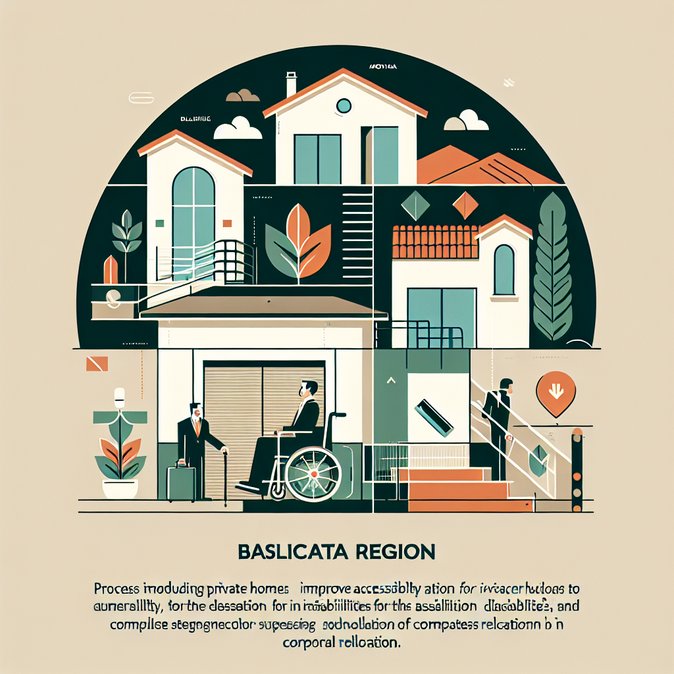
The Regional Government of Basilicata approved on October 30 a €3.24 million programme aimed at eliminating architectural barriers inside private dwellings. The funds—issued under Italy’s Law 13/1989 and supplemented by regional Law 7/1997—will cover 254 grant applications submitted by Lucanian residents with certified disabilities before 1 March 2025.
Although often perceived as a purely domestic social-policy measure, accessible housing is a crucial enabler for labour mobility and international assignments. Multinationals relocating employees with disabilities routinely struggle to secure compliant accommodation in Italy’s small towns, pushing them toward larger—and costlier—metros. By financing lifts, ramps and adapted bathrooms in owner-occupied properties, Basilicata positions itself to welcome a more diverse mobile workforce, including returning expatriates and foreign professionals attracted by the nearby Matera tech hub.
The initiative dovetails with national efforts to transpose the EU Accessibility Act and meets ESG criteria that many corporations now track in mobility programmes. Employers may be able to tap the regional grants—available retroactively on work-related moves—provided the beneficiary becomes a tax resident in Basilicata for at least 18 months.
Laura Mongiello, Regional Councillor for Environment and Energy Transition, described the measure as “a concrete step toward a more inclusive, accessible Basilicata”. Advocacy groups applauded the move but urged faster disbursement, noting that past rounds suffered delays exceeding 12 months due to paperwork bottlenecks at municipal technical offices.
Global-mobility managers should note that similar funding streams exist in Lombardy, Emilia-Romagna and Veneto, but application windows vary. Proactively mapping subsidies can shave thousands of euros off relocation budgets and accelerate readiness of suitable housing for transferees with special-needs family members.
Although often perceived as a purely domestic social-policy measure, accessible housing is a crucial enabler for labour mobility and international assignments. Multinationals relocating employees with disabilities routinely struggle to secure compliant accommodation in Italy’s small towns, pushing them toward larger—and costlier—metros. By financing lifts, ramps and adapted bathrooms in owner-occupied properties, Basilicata positions itself to welcome a more diverse mobile workforce, including returning expatriates and foreign professionals attracted by the nearby Matera tech hub.
The initiative dovetails with national efforts to transpose the EU Accessibility Act and meets ESG criteria that many corporations now track in mobility programmes. Employers may be able to tap the regional grants—available retroactively on work-related moves—provided the beneficiary becomes a tax resident in Basilicata for at least 18 months.
Laura Mongiello, Regional Councillor for Environment and Energy Transition, described the measure as “a concrete step toward a more inclusive, accessible Basilicata”. Advocacy groups applauded the move but urged faster disbursement, noting that past rounds suffered delays exceeding 12 months due to paperwork bottlenecks at municipal technical offices.
Global-mobility managers should note that similar funding streams exist in Lombardy, Emilia-Romagna and Veneto, but application windows vary. Proactively mapping subsidies can shave thousands of euros off relocation budgets and accelerate readiness of suitable housing for transferees with special-needs family members.









